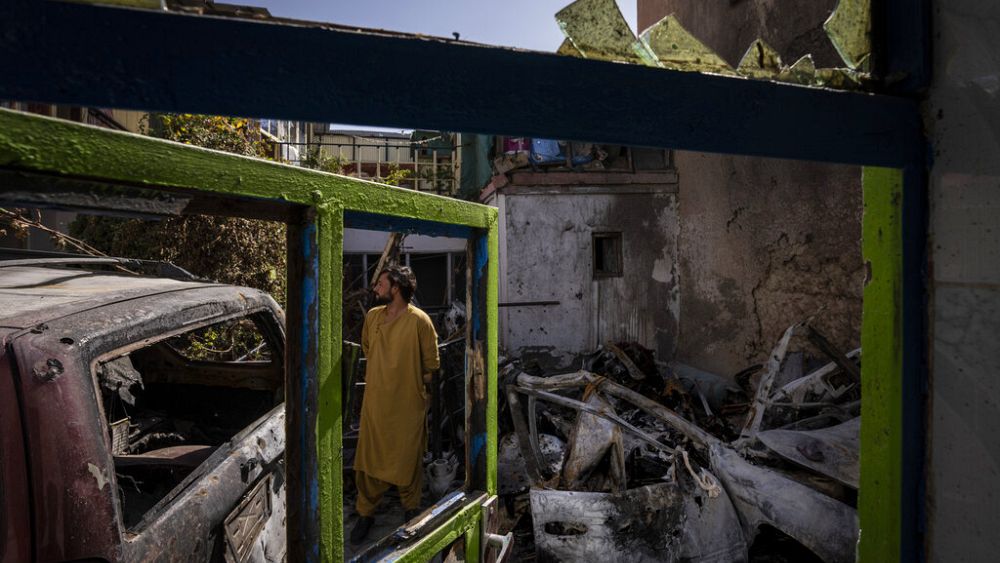
Opinions expressed in View articles are solely those of the authors.
We saw it when the US killed 10 civilians in Kabul in August, when Israeli strikes flattened residential buildings in Gaza, and when The New York Times revealed a cover-up of a US airstrike in Syria that killed dozens of civilians. The spokesperson will likely insist with certainty that the event was an anomaly.
The inference is that because of advances in precision warfare — with bombs so smart they can go through a specific window of a multi-storey building — civilians can be kept safe, even during intense fighting in urban centres.
But from our extensive monitoring of wars in Syria, Iraq, Libya and elsewhere, it’s clear that even technologically advanced militaries can kill large numbers of civilians.
Civilians in urban areas at gravest risk
Our latest research examined the actions of the same military, Israel’s, in two very different conflicts. For the first time, Airwars analysed every local allegation of civilian harm caused by the Israeli military in its eight-year bombing of Iranian-linked forces within Syria. We then compared this with the brief but intense war with Palestinian militants in Gaza this May.
The differences were stark. Since 2013, Israeli strikes in Syria have likely killed between 14 and 40 civilians. In eleven days in Gaza during May, the IDF killed between 151 and 192 non-combatants. How were the outcomes for civilians so different?
The most significant driver of civilian harm is population density. Israel chose not to use explosive weapons in heavily populated areas in Syria, instead of targeting only military targets away from population centres. Far fewer civilians were killed.
In Gaza, one of the most heavily populated territories in the world, the opposite was true: the Israel Defense Forces used explosive weapons on cramped residential neighbourhoods.
Even within Gaza, we found huge variations in outcomes for civilians. By mapping every strike location recorded by the United Nations, and every location where a civilian was harmed, onto population density data in the Gaza Strip, it was clear that the more heavily populated an area, the more civilians were killed.
We may tend to view conflicts between Israelis and Palestinians within a local bubble. But such violence is part of a global trend also implicating the US, Russia, Britain and a score of other nations.
Our findings echo other research, which suggests that more than nine out of ten people killed and injured during fighting in populated areas are civilians, compared to 25 per cent in rural locations.
This is not surprising. The average bomb dropped by the US-led coalition on Mosul contained around 200 pounds of high explosive and was lethal up to a 230-metre radius. That’s nearly a quarter of a kilometre of destruction.
A clear solution – and a window of opportunity
Our own, ongoing monitoring of civilian harm across many conflicts, and our latest study, show the single most effective way to reduce the number of civilians dying in warfare would be to restrict the use of wide-area effect explosive weapons in populated areas.
And that the argument adopted by some militaries – that advanced precision technology would mitigate civilian harm – is not delivering.
This is exactly what a broad group of nations, civil society groups, and international organisations have been pushing for.
There is a crucial window of opportunity in early 2022. Negotiations will begin between diplomats from across the world on limiting the use of wide-area effect explosive weapons in populated areas.
Ireland has been leading a series of discussions since 2019 aimed at drawing up an international declaration to curb the use of explosive weapons in populated areas, or EWIPA. It has garnered support from other states in the process.
Dozens of countries including Belgium have indicated they will support a strong declaration. Germany’s new coalition has committed itself to a similar path.
But many nations are still resistant. There are fears, for example, that the United States, France, Russia and the United Kingdom – permanent members of the UN Security Council that between them, have caused countless civilian deaths from urban strikes in recent years – may seek to water down the wording of any agreement to render it effectively meaningless.
Creating new norms
At times, it can seem an impossible task to get countries, especially military superpowers, to restrict their use of such weapons, especially when they have consistently failed to recognise the harm their own campaigns have caused.
But the current approach, which has led to entire cities being razed to the ground, facilitates neither stability nor peace.
There are positive precedents for change. It was long common wisdom that restrictions on land mines were impossible. Then in 1997, after decades of campaigning, the international Mine Ban Treaty was passed. Nearly 25 years on, countless lives have been saved, and it now seems unthinkable such indiscriminate weapons were once standard.
Creating a new norm around the use of explosive weapons in populated areas will require militaries and governments across the globe to review their own practices, as well as those of others.
They must do so with urgency; 2021 alone saw more than 10,000 civilians reported killed by explosive weapons. We must never take such figures for granted.
Dmytro Chupryna is deputy director at Airwars, a London-based nonprofit that monitors and assesses civilian harm from military actions in Iraq, Syria, Libya, Somalia and Yemen.